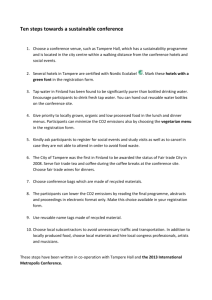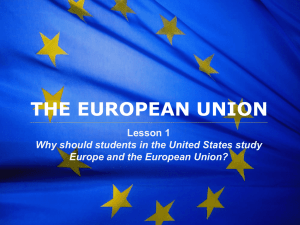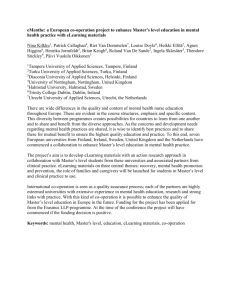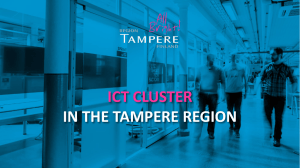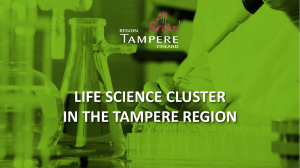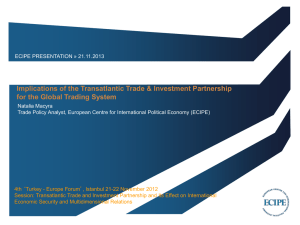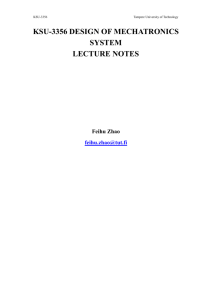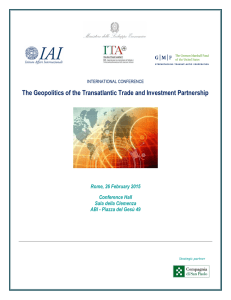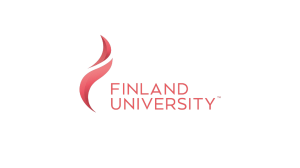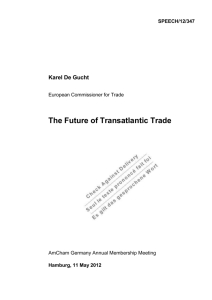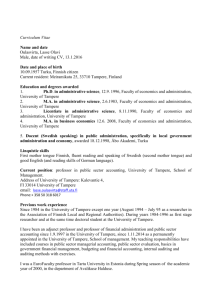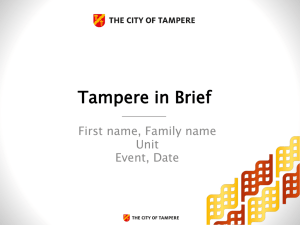Conflict and Community: Transatlantic Relations during the Cold War
advertisement
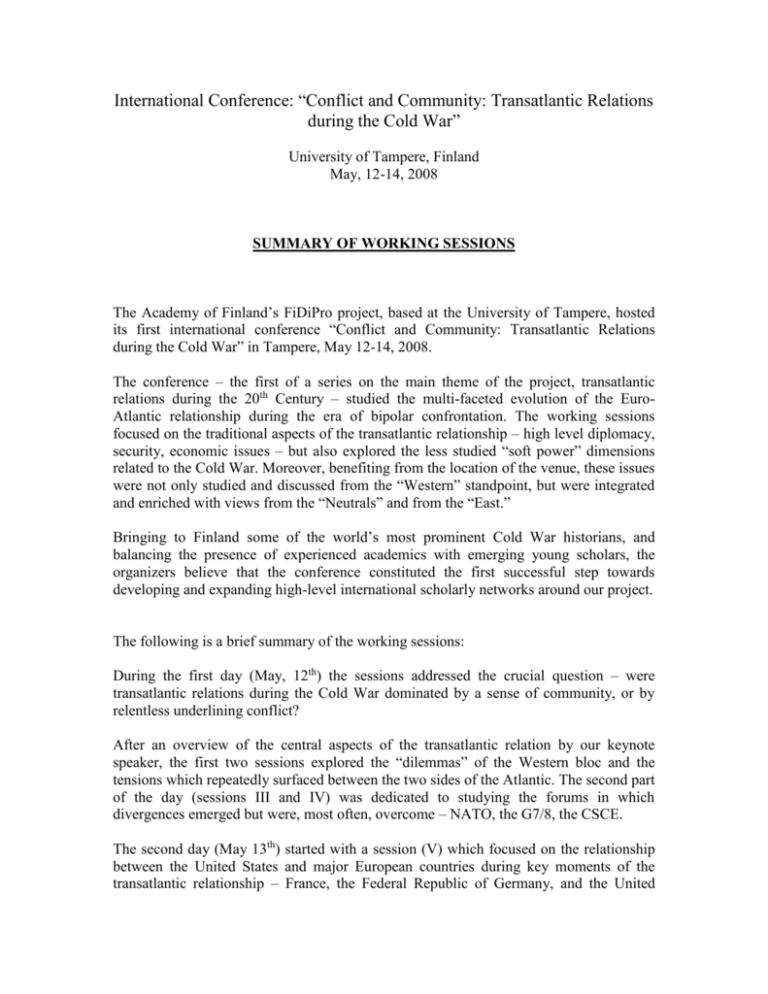
International Conference: “Conflict and Community: Transatlantic Relations during the Cold War” University of Tampere, Finland May, 12-14, 2008 SUMMARY OF WORKING SESSIONS The Academy of Finland’s FiDiPro project, based at the University of Tampere, hosted its first international conference “Conflict and Community: Transatlantic Relations during the Cold War” in Tampere, May 12-14, 2008. The conference – the first of a series on the main theme of the project, transatlantic relations during the 20th Century – studied the multi-faceted evolution of the EuroAtlantic relationship during the era of bipolar confrontation. The working sessions focused on the traditional aspects of the transatlantic relationship – high level diplomacy, security, economic issues – but also explored the less studied “soft power” dimensions related to the Cold War. Moreover, benefiting from the location of the venue, these issues were not only studied and discussed from the “Western” standpoint, but were integrated and enriched with views from the “Neutrals” and from the “East.” Bringing to Finland some of the world’s most prominent Cold War historians, and balancing the presence of experienced academics with emerging young scholars, the organizers believe that the conference constituted the first successful step towards developing and expanding high-level international scholarly networks around our project. The following is a brief summary of the working sessions: During the first day (May, 12th) the sessions addressed the crucial question – were transatlantic relations during the Cold War dominated by a sense of community, or by relentless underlining conflict? After an overview of the central aspects of the transatlantic relation by our keynote speaker, the first two sessions explored the “dilemmas” of the Western bloc and the tensions which repeatedly surfaced between the two sides of the Atlantic. The second part of the day (sessions III and IV) was dedicated to studying the forums in which divergences emerged but were, most often, overcome – NATO, the G7/8, the CSCE. The second day (May 13th) started with a session (V) which focused on the relationship between the United States and major European countries during key moments of the transatlantic relationship – France, the Federal Republic of Germany, and the United Kingdom. Views from the neutrals were assessed in session VI and economic Cold War strategies in session VII. During the second part of the day, culture and science (session VIII) emerged as effective “bridges” between East and West and innovative sources for the study of Cold War were introduced (session IX). During the third day (May 14th), important turning points in the evolution of the transatlantic relationship were studied and discussed as viewed from “the other side” – the Soviet Union (session X). The conference ended with a final roundtable discussion – with prominent scholars from France (Sorbonne Paris III), the UK (London School of Economics), Norway (the Norwegian Nobel Institute), Italy (CIMA/University ‘Roma Tre’), the USA (University of Wisconsin-Madison) and Finland (University of Tampere). The participants assessed whether the Cold War was a “golden age” for transatlantic relations – with views outlining the crisis dominated perspective of the existing literature, the “loss” of Europe’s centrality for American foreign policy-makers, the concepts of “West” and shared common “values.” The discussion also focused on the “legacies” of the Cold War – in terms of “structure” and/or principles of the Euro-Atlantic “community” – and on the present and future historiography of the field. * * * The organizers wish to thank all the participants, our partners (The Cold War Studies Centre, LSE; The Machiavelli Center for Cold War Studies/CIMA, Italy; The Center for Security Studies, ETH Zurich; The Aleksanteri Institute, University of Helsinki), our sponsors (Academy of Finland, University of Tampere, U.S. Embassy of Finland, University of Tampere Foundation, Federation of Finnish Learned Societies) and sincerely look forward to working together again in the future. Jussi Hanhimäki; Finland Distinguised Professor (FiDiPro, University of Tampere) Barbara Zanchetta; FiDiPro Research Fellow, University of Tampere For further information: www.uta.fi/laitokset/historia/sivut/english/conflictcommunity/conferences.htm Contact: Dr. Barbara Zanchetta (barbara.zanchetta@uta.fi)
